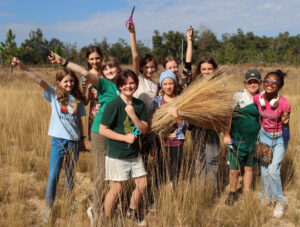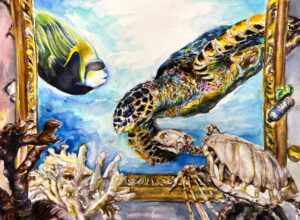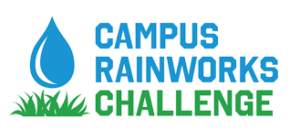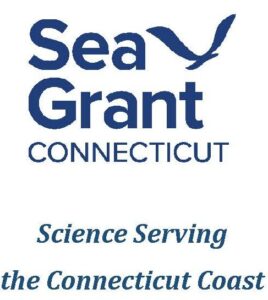Environmental Stewardship Projects & Competition

Join New England Science & Sailing (NESS) for a workshop series as we dive into the best practices for implementing meaningful watershed educational experiences in alternative learning schools. This will include three virtual speakers throughout April, and then one in-person workshop on April 27th. Connect with a community of educators who are passionate about igniting curiosity for environmental stewardship and scientific investigation, interact with speakers in environmental education fields, explore free resources to support your STEM curriculum, and hear from the NESS B-WET Teacher Cohort as they share their findings throughout the past 3 years. Thanks to NESS’s B-WET grant provided by NOAA, this professional development opportunity is available for free.
April 3rd, 5:00-6:00 pm est on Zoom – Nina Quaratella and Hannah King, New England Science & Sailing
Kickoff the speaker series with Nina Quaratella, Director of Programs, and Hannah King, Education Specialist, as they dive into the best practices NESS Educators and the B-WET Teacher Cohort use when blending experiential learning in alternative school settings and how they impact the social-emotional learning (SEL) skill growth in students.
April 17th, 5:00-6:00 pm est on Zoom – Val Perini, The Trustees
Learn from Val Perini, a Regional Education Manager in the North Shore with The Trustees, as she shares her experiences when working in outdoor education and how to connect issues such as climate change and culture to programs at The Trustees’ conservation sites. Explore free resources to use when developing your own field programming, and reflect on essential elements that support students’ investigation while designing environmental action projects.
April 24th, 5:00-6:00 pm est on Zoom – Maggie Cozens, Connecticut Sea Grant
Join Maggie Cozens, The Long Island Sound Study Outreach Coordinator with CT Sea Grant, as she shares their work facilitating place-placed learning and empowering students to investigate and take action in their watersheds.
April 27th, 10:00 am-3:30 pm est – In-Person Workshop at NESS Stonington
Visit us in Stonington, CT! Join NESS and B-WET cohort teachers for training on the upcoming release of the NESS B-WET Climate Change & Ocean Acidification Lesson Plan. Hear from NESS Educators and B-WET cohort teachers on their best practices used to engage and inspire students when teaching environmental education. After a morning at NESS, get your feet wet and your hands muddy as we travel to a nearby monitoring site to explore a local estuarine environment and gather water quality data. Following the Meaningful Watershed Educational Experience (MWEE) framework, this in-the-field training will provide hands-on experience to activities and lessons you can translate into your educational programming.
Agenda:
10:00 Arrival at NESS (72 Water Street, Stonington, CT)
10:15 Presentation from NESS Educators & B-WET Teacher Cohort on Research Findings
11:00 Climate Change Lesson Plan Training
12:30 Lunch Break
1:30 Barn Island Salt Marsh: Water Quality Monitoring Training
3:30 Wrap Up & Reflection

NOAA Planet Stewards is now accepting
proposals for 2024/2025 project funding!
Educators can receive up to $5000 to carry out hands-on stewardship projects that make a difference. Scroll down for all the details you’ll need to get started, along with information on two live video conferences we’re offering to answer your questions about stewardship projects and the application process.

Do you want to engage your students and community in actions that address pressing environmental issues?
Through federal funding opportunities of up to $5,000, NOAA Planet Stewards will support formal and informal educators working with elementary through college age students, and the public, to carry out hands-on stewardship projects. Stewardship projects must make a substantive, and quantitatively measurable impact on an environmental issue related to the educator’s community. Projects should focus on the conservation, restoration, and/or protection of human communities and/or natural resources from environmental issues in one of the following four focus areas:
- Marine debris mitigation/removal
- Habitat conservation and restoration
- Carbon footprint reduction
- Carbon sequestration
Visit our Focus Area Resources page for more information about these topics.
NOAA Planet Stewards has developed the following Webpages and documents to help you plan your project and answer the questions on the application. We strongly recommend you carefully review and use these documents in the development of your proposal.
- Application Landing Page
- Project Development Guide
- Examples of Previously Funded Projects
- Examples of Funded Project Proposals:
- Marine Debris: Clean Up Crew: Empowering Future Changemakers
- Habitat Restoration & Conservation: Young Stewards Promoting Border Resiliency
- Carbon Footprint Reduction: Runaway Carbon Cycle – Reducing Carbon Emissions
- Carbon Sequestration: The Tiny Forest Project
Educators requesting funding from NOAA Planet Stewards must submit an application and supporting documents by midnight (Pacific Time) June 2, 2024.
Applicants will be contacted regarding the status of their submission no later than July 31, 2024.
If approved, funds will be made available for educators to carry out their project during the 2024/2025 academic year.
Educators receiving stewardship project funds are required to send a detailed progress report every six months until the project is completed. For projects taking place during the 2024/2025 academic year, the first progress report is due by midnight (Pacific Time), February 2, 2025. A final report must be submitted within one month of completing the project, but no later than July 28, 2025.

Eligibility
Funding from NOAA Planet Stewards is open to all formal and informal educators working with elementary through college age students, and the public.
Funding preference will be given to:
- Educators actively working in pairs or groups.
- Educators proposing projects that engage multiple classrooms, grade bands, entire schools, or multiple schools.
- Educators with organizational leadership roles, skills, or engaged in activities that give them an advantage in completing their project.
- Projects which engage underserved and underrepresented audiences. The NOAA Office of Education defines these as:
Underserved audiences: Populations who receive inadequate or inequitable services, who experience quality-of-life disparities, and who by design have little power or influence over outside decisions that impact their daily quality of life.
Underrepresented audiences: Populations in STEM who are categorized in the following racial or ethnic minority groups (Blacks or African Americans; Hispanics or Latinos; American Indians or Alaska Natives, and Native Pacific Islanders) based on their representation in STEM education or employment being smaller than their representation in the U.S. population.
- Projects engaging partners external to the submitting educator’s school or organization; especially those that provide tangible in-kind support.
- Projects designed to persist beyond the federal funding period.
Educators who have previously received funds from NOAA Planet Stewards may apply for this funding opportunity. These applications must either be:
- Significantly different from their previously funded projects, or
- Significantly expand the scope or impact of their previously funded project (e.g., involve significantly more/different types of students and/or members of the community, increase the quantitative impact of their project, etc.).
Educators currently implementing a stewardship project may apply for this funding opportunity if they have submitted a progress or final report and all required supporting documents that show significant progress in their current activities.
Funding Conditions
NOAA Planet Stewards funds are disbursed to support the implementation of stewardship projects and MUST be applied directly toward resources and activities leading toward the successful completion of the project.
Funds CANNOT be used for:
- salaries (except for substitute teachers in formal education settings)
- transportation/lodging/fees for attendance at professional conferences, or for personal professional development
- overhead costs.
Funds WILL NOT be allocated directly to educators.
NOAA Planet Stewards funds WILL ONLY be allocated to:
- a recognized school or school district
- a registered not for profit organization
- a registered not for profit institution affiliated with the educator applicant.
Applying for Funding
Details about the application process, links to the supporting documents noted above, and the online application, may be found on our Supporting Stewardship page
Have Questions? We’ll try to Answer Them.
Tuesday, April 2 and April 30, 2024 I 7:00 – 8:00 PM ET
NOAA Planet Stewards is offering two opportunities for you to join a live video conference where you can ask questions about stewardship project development, implementation, and the funding application process.
This session WILL NOT introduce information already posted on our website, or found within the supporting documents noted above.
We strongly recommend you review ALL the information on our website and in our supporting documents before joining this meeting, and come with your questions in hand.
Spaces for these events are limited!
Click the following link to join the live event, or copy and paste it into your browser:
If you are unable to join through your browser, you can dial in at:
(US) +1 928-793-2072
PIN: 350 609 389#

Now Accepting Entries for the 2024 Marine Endangered Species Art Contest!

Muya X., grade 10, MA, “A Reflection in a Museum”
Contest for Kids K-12: Entries Due Monday, April 22, 2024
Teachers: Celebrate Endangered Species Day (May 17) by having your classroom participate in the 2024 Marine Endangered Species Art Contest!
Endangered and threatened species need our help. Students’ artwork will showcase their knowledge and commitment to protecting these animals. While we are located in New England and the mid-Atlantic United States, we invite participants from anywhere in the world to submit entries!
Artwork should highlight one or more marine endangered or threatened species from the New England/Mid-Atlantic region of the United States. Text highlighting why you chose this species and what people can do to protect them may also be included. Potential themes may vary by age. Some ideas include animals in their natural habitat, sharing the shore and sea, threats to the species, or how we can help them recover.
Get the details on entry requirements, entry submissions, prizes, and more on our web page. Good luck!
Questions?
Contact us at nmfs.gar.es-art-contest@noaa.gov.
Announcing the 2024 WCSU Environmental Stewardship Competitions

Registration is open for the 11th Campus RainWorks Challenge!
The U.S. Environmental Protection Agency’s (EPA) Office of Water is pleased to announce the opening of registration for 11th Campus RainWorks Challenge—a design competition for students from U.S. colleges and universities to showcase benefits of green infrastructure for their campus and community.
Key Dates:
Team registration: January 2nd – January 31st, 2024
Entries due: May 24th, 2024
Winners announced: Summer 2024
Visit the Campus RainWorks webpage to register and all the details: https://www.epa.gov/green-infrastructure/campus-rainworks-challenge-0
Step up to the Challenge!
Questions? Send them to Rainworks@epa.gov
Follow the Campus RainWorks Challenge on Facebook and Instagram at EPAWater.
 Connecticut Sea Grant announces the 2024 call for submission to the Arts support Awards Program. All artistic disciplines are eligible, including visual, performing, literature, composition, film, etc. At least one award will be made to an artist or group of artists though this competitive funding program. The maximum amount of any award is $1000. The winning submission will be selected based on aesthetic quality, relevance to coastal and marine environments and Connecticut Sea Grant themes, as well as its potential impact on non-traditional “audiences”.
Connecticut Sea Grant announces the 2024 call for submission to the Arts support Awards Program. All artistic disciplines are eligible, including visual, performing, literature, composition, film, etc. At least one award will be made to an artist or group of artists though this competitive funding program. The maximum amount of any award is $1000. The winning submission will be selected based on aesthetic quality, relevance to coastal and marine environments and Connecticut Sea Grant themes, as well as its potential impact on non-traditional “audiences”.
Deadline: Applications must be received by 4:30pm on Friday, May 17th, 2024.
Eligibility: Artists who live in Connecticut, or non-Connecticut artists whose work is related to Connecticut’s coastal and marine environments or Long Island Sound.
For guidance and forms, refer to: https://seagrant.uconn.edu/2023/02/17/ct-sea-grant-arts-support-awards-program-for-artists/
Question? Contact Dr. Syma A. Ebbin, Research Coordinator, Connecticut Sea Grant at: syma.ebbin@uconn.edu.
Previous Project and Competition Opportunities

